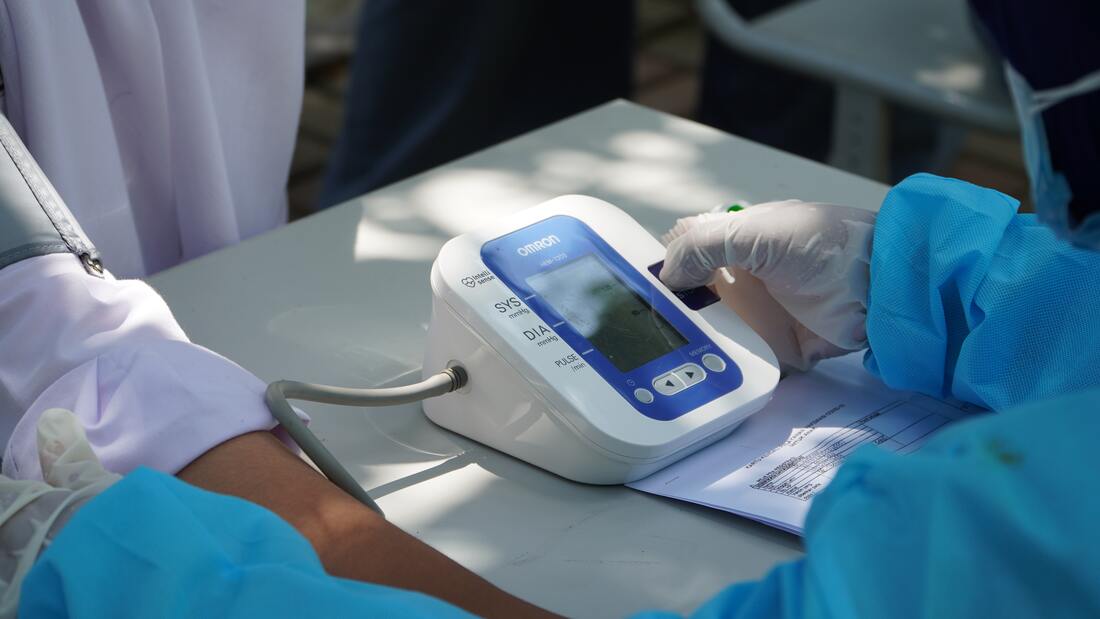As we enter our third year of the pandemic, the last thing we want to hear more about is healthcare. We’ve been inundated -- it’s all anyone can talk about. Personally, I would love to talk about travel, art shows, concerts and book clubs, all the things I miss!
Unfortunately, we still need to talk about healthcare because many Americans are missing critical healthcare screenings. At first, we just put them off not realizing how long the pandemic would last. Now, I think we are just collectively burned out regarding anything healthcare related. Even before the pandemic, my patients struggled to check all the boxes for preventative healthcare. I’ve put together a list below of routine healthcare screenings that I recommend.
Annual physical exam
Your primary care physician should perform a physical exam each year. This overall screening helps identify any concerns. This will include a screening for blood pressure. Bloodwork is often ordered during this visit.
There are many other screenings that are based on age including mammograms, colonoscopies, prostate exams and gynecological exams. Your primary care physician can help you determine when it’s appropriate to have these screenings done.
Bloodwork
What lab work to run annually is probably the most ‘controversial’ on my list because everyone has a different opinion. For example, some providers run vitamin D each year and others insist that it’s not worth it. Each provider is going to have their own opinion about what’s warranted each year.
Here’s mine:
For more details on some of the lab markers above check out my blog on ‘Knowing Your Numbers.’
Dental
Oral health is critical to our overall health. Too many of us skip regular dental exams. Cleanings are typically recommended every 6 months with x-rays every year. Talk to your dentist about what’s right for you.
Eye Exams
These are particularly important if you have blood sugar dysregulation or family history of glaucoma. Many Americans need glasses and don’t realize it. So if it’s been a few years make an appointment with your eye doctor so they can weigh in about just how often you should be screened.
Skin Exams
I recommend annual skin exams at your dermatologists office. If you have many moles or very fair skin you may need to be screened more often. Your dermatologist can help you determine the appropriate frequency of visits.
It’s a lot, I know, but you’re worth it! There are a few strategies you can employ to help you remember to get these appointments checked off your to-do list.
One option is to pick a ‘health month.’ For example, if January is your health month you would schedule your eye exam, physical, skin check, etc. in January each year.
Another option is to assign each check up to a month. Maybe your annual physical is in January every year. Then you have your eyes checked each February and so on.
Early screenings and regular check ups save lives. Please make a plan and talk to your doctor about which screenings are appropriate for you.
Unfortunately, we still need to talk about healthcare because many Americans are missing critical healthcare screenings. At first, we just put them off not realizing how long the pandemic would last. Now, I think we are just collectively burned out regarding anything healthcare related. Even before the pandemic, my patients struggled to check all the boxes for preventative healthcare. I’ve put together a list below of routine healthcare screenings that I recommend.
Annual physical exam
Your primary care physician should perform a physical exam each year. This overall screening helps identify any concerns. This will include a screening for blood pressure. Bloodwork is often ordered during this visit.
There are many other screenings that are based on age including mammograms, colonoscopies, prostate exams and gynecological exams. Your primary care physician can help you determine when it’s appropriate to have these screenings done.
Bloodwork
What lab work to run annually is probably the most ‘controversial’ on my list because everyone has a different opinion. For example, some providers run vitamin D each year and others insist that it’s not worth it. Each provider is going to have their own opinion about what’s warranted each year.
Here’s mine:
- For someone who is generally healthy: Vitamin D, lipid panel, CMP, CBC, TSH, A1c. It’s a long list for a healthy person but catching something early or seeing a trend change over time is critical in preventing more serious illness.
- For someone with metabolic concerns or strong family history of metabolic disease: Vitamin D, lipid panel, CMP, CBC, TSH, A1c, insulin and maybe also CRP
For more details on some of the lab markers above check out my blog on ‘Knowing Your Numbers.’
Dental
Oral health is critical to our overall health. Too many of us skip regular dental exams. Cleanings are typically recommended every 6 months with x-rays every year. Talk to your dentist about what’s right for you.
Eye Exams
These are particularly important if you have blood sugar dysregulation or family history of glaucoma. Many Americans need glasses and don’t realize it. So if it’s been a few years make an appointment with your eye doctor so they can weigh in about just how often you should be screened.
Skin Exams
I recommend annual skin exams at your dermatologists office. If you have many moles or very fair skin you may need to be screened more often. Your dermatologist can help you determine the appropriate frequency of visits.
It’s a lot, I know, but you’re worth it! There are a few strategies you can employ to help you remember to get these appointments checked off your to-do list.
One option is to pick a ‘health month.’ For example, if January is your health month you would schedule your eye exam, physical, skin check, etc. in January each year.
Another option is to assign each check up to a month. Maybe your annual physical is in January every year. Then you have your eyes checked each February and so on.
Early screenings and regular check ups save lives. Please make a plan and talk to your doctor about which screenings are appropriate for you.



 RSS Feed
RSS Feed